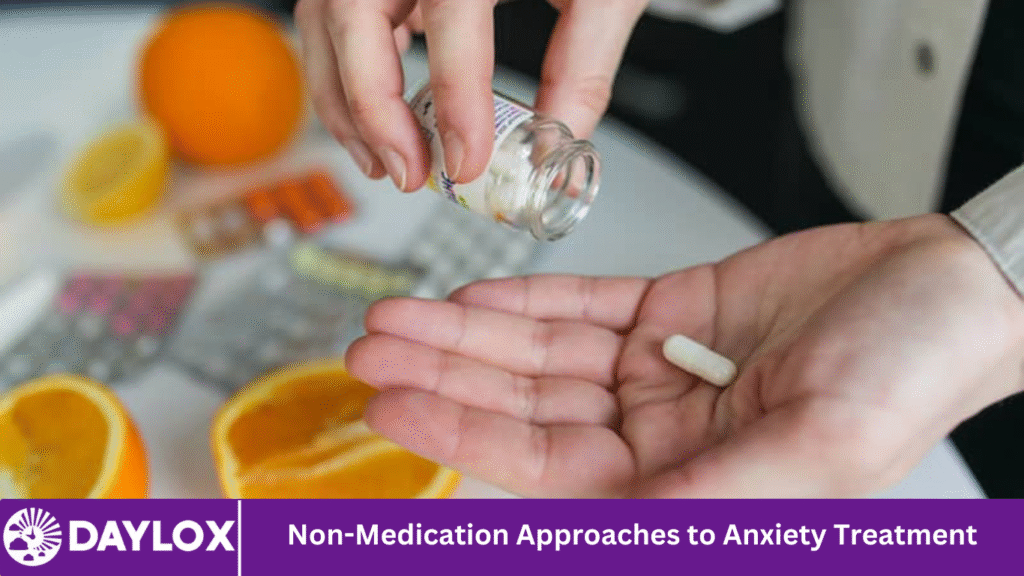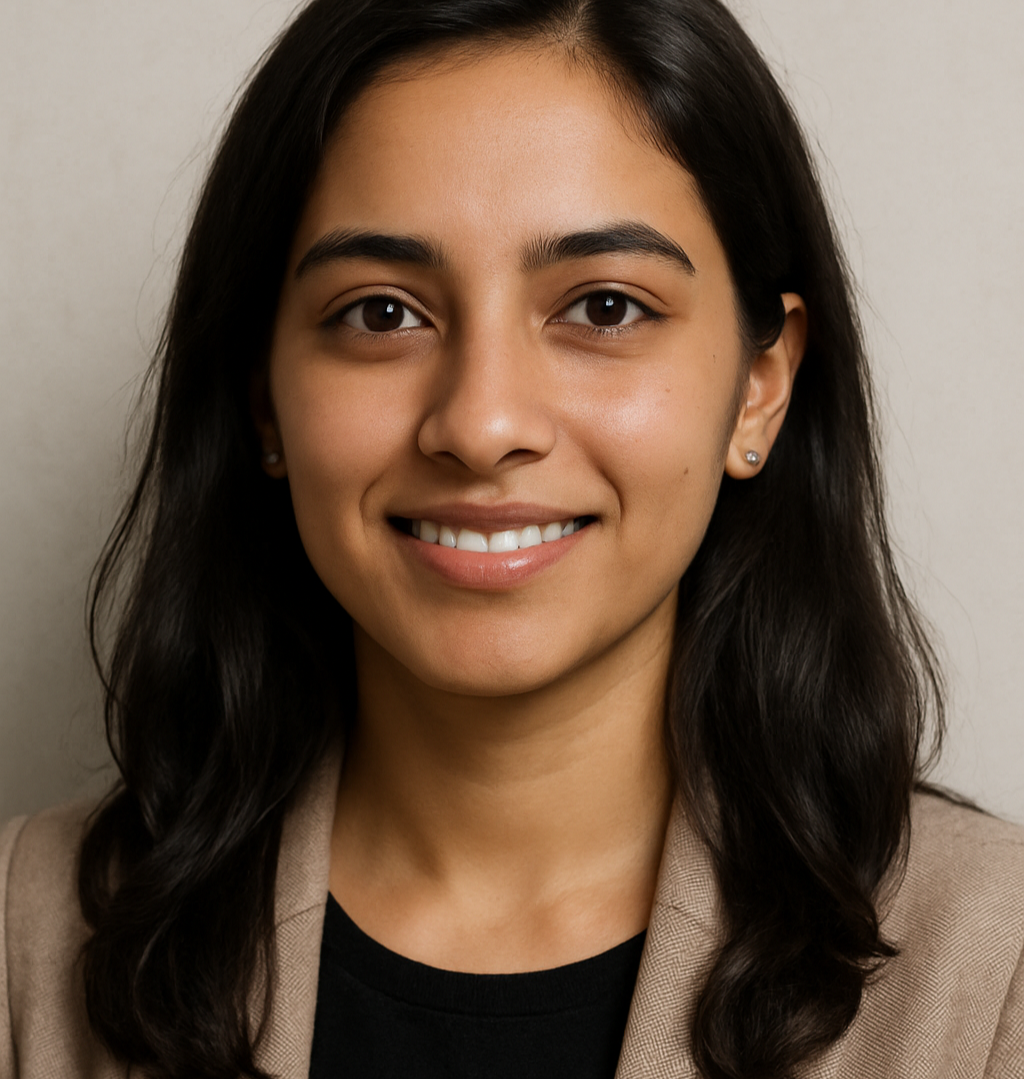Anxiety is a common mental health condition affecting millions of people worldwide. While medication can be effective for managing symptoms, it is not the only option. For many individuals, non-medication approaches can offer significant relief and long-term coping strategies.
This article explores evidence-based, non-pharmacological treatments for anxiety, including psychotherapy, lifestyle changes, dietary adjustments, and alternative therapies.
More Read: 6 Natural Ways to Relieve Stress and Anxiety
Understanding Anxiety
Anxiety is the body’s natural response to stress, characterized by feelings of worry, nervousness, or fear. When these feelings become persistent and overwhelming, they can interfere with daily life and may indicate an anxiety disorder. Common types include generalized anxiety disorder (GAD), social anxiety disorder, panic disorder, and specific phobias.
While medication such as selective serotonin reuptake inhibitors (SSRIs) or benzodiazepines are commonly prescribed, they may not be suitable for everyone. Side effects, dependency concerns, and personal preference often lead individuals to seek alternative treatments.
1. Psychotherapy
Cognitive Behavioral Therapy (CBT)
CBT is one of the most effective and widely used treatments for anxiety. It helps individuals identify and challenge negative thought patterns and develop healthier coping mechanisms. Numerous studies support its efficacy in reducing symptoms across various anxiety disorders.
Exposure Therapy
This form of therapy is particularly effective for phobias and panic disorder. It involves gradual exposure to the feared object or situation in a controlled environment, helping individuals build tolerance and reduce avoidance behaviors.
Acceptance and Commitment Therapy (ACT)
ACT focuses on accepting anxious thoughts rather than fighting them. It encourages mindfulness and commitment to personal values, helping individuals build a more meaningful life despite anxiety.
Dialectical Behavior Therapy (DBT)
Originally developed for borderline personality disorder, DBT is also useful for anxiety. It combines CBT with mindfulness techniques and emphasizes emotion regulation and distress tolerance.
2. Lifestyle Changes
Regular Exercise
Physical activity has been shown to significantly reduce anxiety levels. Exercise helps release endorphins, improve sleep, and reduce stress. Activities such as jogging, swimming, yoga, and even brisk walking can be beneficial.
Sleep Hygiene
Poor sleep can exacerbate anxiety symptoms. Establishing a regular sleep routine, avoiding screens before bedtime, and creating a restful sleep environment are key components of sleep hygiene.
Stress Management
Chronic stress is a major contributor to anxiety. Techniques such as deep breathing, progressive muscle relaxation, and time management can help individuals manage stress more effectively.
Limiting Stimulants
Caffeine, nicotine, and certain over-the-counter medications can increase anxiety symptoms. Reducing or eliminating these substances may lead to noticeable improvements.
3. Dietary Adjustments
Balanced Diet
A well-balanced diet rich in whole grains, lean proteins, fruits, and vegetables supports overall mental health. Nutrient deficiencies, such as low levels of magnesium or vitamin B12, can contribute to anxiety symptoms.
Hydration
Dehydration can impact mood and cognitive function. Drinking enough water throughout the day helps maintain optimal brain function and reduce irritability.
Avoiding Alcohol and Sugar
While alcohol and sugary foods may offer temporary relief, they can worsen anxiety over time. Moderation and mindful consumption are key.
4. Mindfulness and Meditation
Mindfulness-Based Stress Reduction (MBSR)
MBSR combines mindfulness meditation and yoga to cultivate present-moment awareness and reduce stress. Research has shown it to be effective in reducing anxiety symptoms.
Guided Meditation
Apps and online resources provide guided meditations specifically designed for anxiety. Regular practice can help individuals stay grounded and manage anxious thoughts more effectively.
Breathing Techniques
Simple breathing exercises, such as diaphragmatic breathing or the 4-7-8 technique, can quickly calm the nervous system and reduce acute anxiety.
5. Alternative Therapies
Acupuncture
This traditional Chinese medicine technique involves inserting thin needles into specific points on the body. Some studies suggest it may help reduce anxiety by balancing energy flow and stimulating the nervous system.
Aromatherapy
Essential oils such as lavender, chamomile, and bergamot have calming effects. They can be used in diffusers, baths, or applied topically (with a carrier oil).
Massage Therapy
Regular massage can lower stress hormones, improve circulation, and promote relaxation, all of which can help reduce anxiety.
Art and Music Therapy
Creative therapies provide emotional expression and relaxation. Engaging in art or listening to calming music can be especially beneficial for those who find it difficult to verbalize their feelings.
6. Social Support
Support Groups
Joining a support group allows individuals to connect with others facing similar challenges. Sharing experiences and coping strategies can foster a sense of belonging and reduce isolation.
Family and Friends
Strong social connections are vital for mental health. Talking to trusted friends or family members about anxiety can provide emotional relief and practical support.
7. Self-Help Strategies
Journaling
Writing about thoughts and feelings can provide clarity and emotional release. It can also help identify triggers and track progress over time.
Setting Realistic Goals
Breaking tasks into manageable steps and setting achievable goals can reduce overwhelm and build confidence.
Limiting Media Consumption
Constant exposure to negative news or social media can increase anxiety. Setting boundaries around media use can help maintain a healthier mental state.
When to Seek Professional Help
While non-medication approaches can be highly effective, it’s important to recognize when professional help is needed. If anxiety is interfering with daily life, relationships, or physical health, consulting a mental health professional is essential.
Frequently Asked Question
Can anxiety be treated effectively without medication?
Yes. Many people successfully manage anxiety through non-medication methods such as psychotherapy (especially CBT), mindfulness practices, lifestyle changes, and alternative therapies. However, effectiveness varies by individual, and it’s best to consult a mental health professional to create a tailored plan.
What is the most effective non-medication treatment for anxiety?
Cognitive Behavioral Therapy (CBT) is widely regarded as the most effective non-medication treatment. It helps individuals reframe negative thought patterns and develop healthier coping strategies for anxiety.
Can exercise really help reduce anxiety?
Absolutely. Regular physical activity increases endorphins and serotonin levels, which improve mood and reduce stress. Even low-impact exercises like walking, yoga, or swimming can make a significant difference.
How does diet affect anxiety?
A balanced diet rich in whole foods supports brain function and mood regulation. Nutrient deficiencies (e.g., magnesium, B-vitamins, omega-3s) can worsen anxiety symptoms, while high sugar, caffeine, and alcohol intake may increase them.
Is mindfulness or meditation effective for anxiety?
Yes. Mindfulness and meditation have been shown to reduce anxiety by helping individuals focus on the present moment and manage racing thoughts. Techniques like guided meditation, deep breathing, and MBSR (Mindfulness-Based Stress Reduction) are commonly used.
What alternative therapies are available for anxiety?
Popular non-medical alternatives include acupuncture, aromatherapy, massage therapy, and art/music therapy. These approaches promote relaxation and emotional well-being but should be used as part of a broader treatment plan.
When should I seek professional help for anxiety?
You should seek help if anxiety is interfering with your daily life, relationships, or physical health. A mental health professional can help determine the best combination of therapy, lifestyle changes, and—if needed—medication.
Conclusion
Non-medication approaches to anxiety treatment can offer powerful tools for managing symptoms and improving quality of life. From evidence-based therapies like CBT and ACT to lifestyle changes, dietary improvements, and mindfulness practices, individuals have a wide range of options. It’s crucial to consult with healthcare professionals when exploring these treatments, especially when transitioning away from medication. With the right combination of strategies and support, it is possible to live a fulfilling life while managing anxiety naturally.


